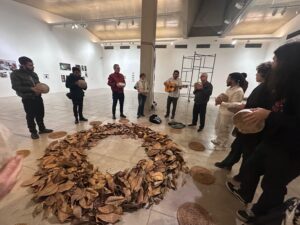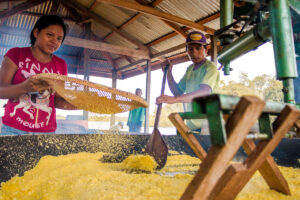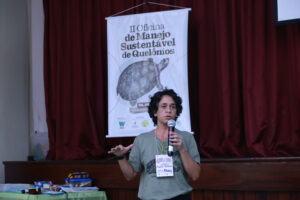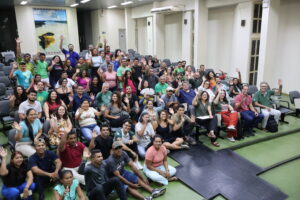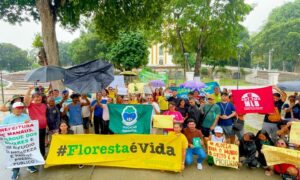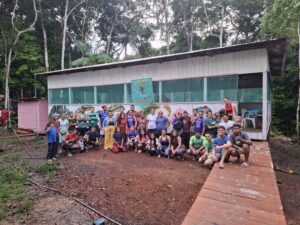By Renato Rocha
In August 1979, the Porantim newspaper, published by the Indigenous Missionary Council, printed in one of its pages a list of 85 names of indigenous people of the Deni ethnic group who had died as a result of an outbreak of tuberculosis that was devastating the villages of the Xeruã river, an affluent of the Juruá River. Due to its gravity, the news reached national repercussion, still what happened was not enough to alert public authorities about the ongoing genocide. According to Egon Dionísio, the missionary responsible for the complaint, FUNAI even sent a doctor to the Deni Villages, who diagnosed some “perebas” and distributed vitamins for the indigenous.
Without a doubt, this was not the first time that the indigenous people of the Médio Juruá have been faced with a serious epidemiological outbreak. Unfortunately, it would not be the last either. Years later, in 1992, the Deni and Majiha Kulina people would be in the news again, but this time due to an outbreak of measles that resulted in the death of 67 people (PEZZUTI, 2009). According to an article by José Rocha, published in march of that year in the Manauara newspaper A Crítica, “the alarming number of deaths from measles highlights at least two problems faced by the indigenous people from the Amazon: the violation of land rights and the state of neglect with the lack of health care”. The journalist showed a reality currently ignored by the Brazilian government: the intimate relationship between the well-being of the indigenous people and the guarantee of the original right to the land.
Recently, in the middle of the COVID-19 pandemic, the Articulação dos Povos Indígenas do Brasil (APIB) achieved a historic victory in the Federal Supreme Court (STF), through ADPF 709¹, which denounced racist acts practiced by the Union against indigenous people, such as FUNAI’s omission to the constant invasions of indigenous territories and SESAI’s refusal to assist indigenous people residing in an urban context or on indigenous lands that had not been ratified. The decision of STF was favorable to the indigenous movement, by determining, among other things, the creation of sanitary barriers in indigenous lands and the priority application of COVID-19 vaccines to the entire indigenous population of Brazil, regardless of the legal status of their territories or location of their residences.
This decision ensured that the indigenous people of the Middle Juruá, who do not yet have their traditional territories recognized by the Union, could also be vaccinated. In the Middle Juruá, the Kanamari and Majiha Kulina ehtnic groups are still waiting for the demarcation of their lands. Even though the horizons are cloudy, these people are joining the national indigenous mobilization in the historic struggle for the original right to their land.
In June of this year, hundreds of indigenous people, representing about 45 ethnic groups, gathered in Brasilia in the “Levante pela Terra”(Rising for the Land). The mobilization sought to mark the people’s opposition to the approval by the Comissão de Constituição e Justiça (CCJ) of Bill 490/2007. Flagrantly unconstitutional, the Bill 490 represents a serious setback in the rights of native indigenous people by allowing the opening of indigenous lands to predatory economic activities, injuring these people’s right to the exclusive use of their territories. Bill 490 also promotes an offensive against isolated indigenous people, and adopts the thesis of a temporal framework and procedures that would make the demarcation of indigenous lands inviable.
During the CCJ session that tragically approved Bill 490, indigenous deputy Joênia Wapishana was prevented from speaking precisely when she was denouncing the absence of hearing of the indigenous people, provided by OIT Convention 169, which guarantees traditional communities the right to free, prior and informed consultation before any administrative or legislative measures that may affect them.
By deciding not to die, the indigenous people refuse to remain silent and are already organizing new mobilizations to resist PL 490 and so many other ongoing offensives in the National Congress. In the Middle Juruá, attentive to national mobilizations, the Deni, Kanamari and Majiha Kulina people, sustain the struggle for their original rights. They protect their lands, feed their children, dance and sing their stories, certain that this genocide, already denounced in 1979 and experienced throughout their history, will come to an end.
–
Renato Rocha is an indigenist for Operação Amazônia Nativa (OPAN) and an activist for the defense of human rights. He has been working in the mid-Juruá region since 2015.

